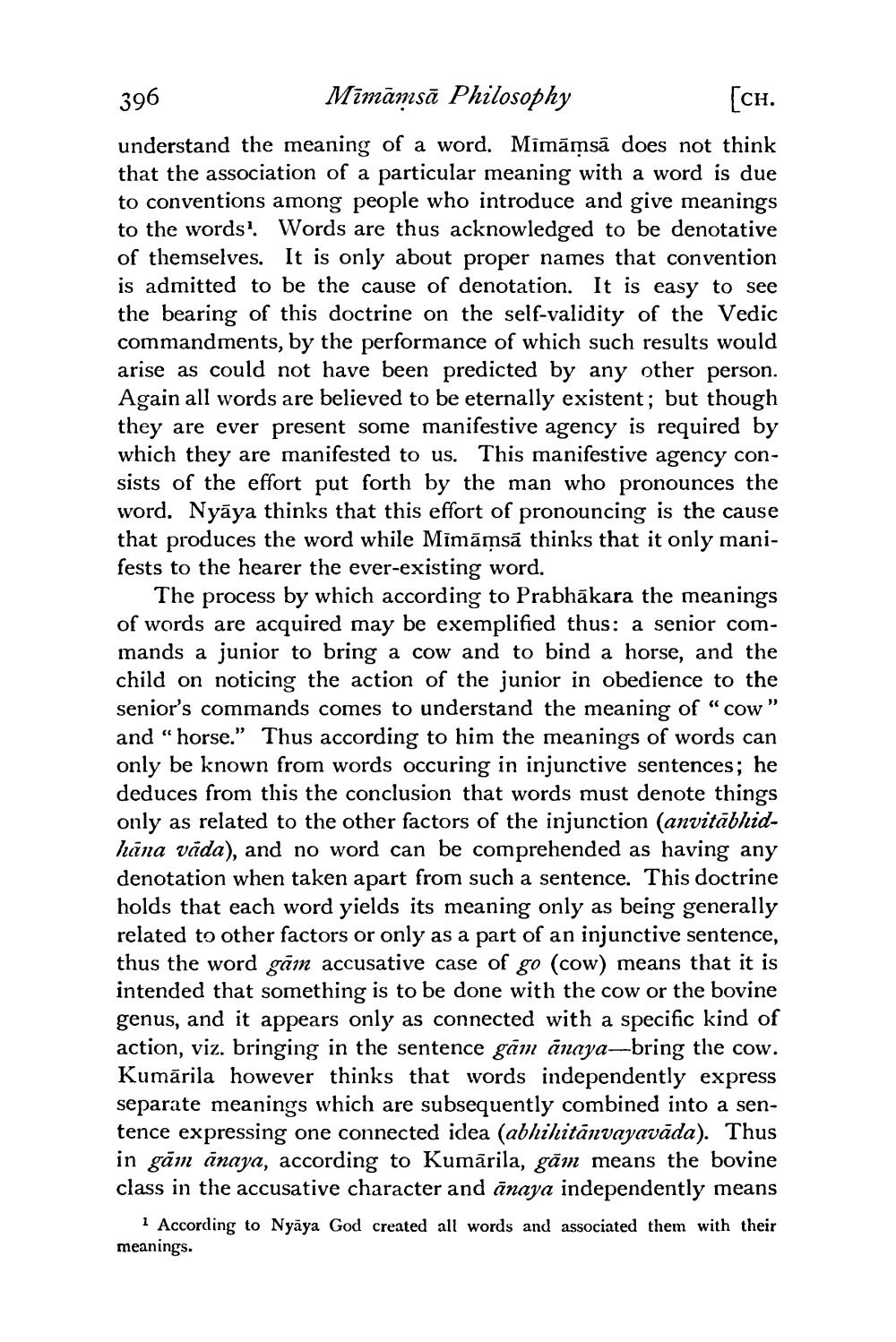________________
396
Mimāmsā Philosophy
[CH. understand the meaning of a word. Mimāmsā does not think that the association of a particular meaning with a word is due to conventions among people who introduce and give meanings to the words? Words are thus acknowledged to be denotative of themselves. It is only about proper names that convention is admitted to be the cause of denotation. It is easy to see the bearing of this doctrine on the self-validity of the Vedic commandments, by the performance of which such results would arise as could not have been predicted by any other person. Again all words are believed to be eternally existent; but though they are ever present some manifestive agency is required by which they are manifested to us. This manifestive agency consists of the effort put forth by the man who pronounces the word. Nyāya thinks that this effort of pronouncing is the cause that produces the word while Mīmāmsā thinks that it only manifests to the hearer the ever-existing word.
The process by which according to Prabhākara the meanings of words are acquired may be exemplified thus: a senior commands a junior to bring a cow and to bind a horse, and the child on noticing the action of the junior in obedience to the senior's commands comes to understand the meaning of “cow" and "horse." Thus according to him the meanings of words can only be known from words occuring in injunctive sentences; he deduces from this the conclusion that words must denote things only as related to the other factors of the injunction (anvitābhidhāna vāda), and no word can be comprehended as having any denotation when taken apart from such a sentence. This doctrine holds that each word yields its meaning only as being generally related to other factors or only as a part of an injunctive sentence, thus the word gām accusative case of go (cow) means that it is intended that something is to be done with the cow or the bovine genus, and it appears only as connected with a specific kind of action, viz. bringing in the sentence gām ānaya-bring the cow. Kumārila however thinks that words independently express separate meanings which are subsequently combined into a sentence expressing one connected idea (abhihitānvayavāda). Thus in gām ānaya, according to Kumārila, gām means the bovine class in the accusative character and ānaya independently means
According to Nyāya God created all words and associated them with their meanings.




